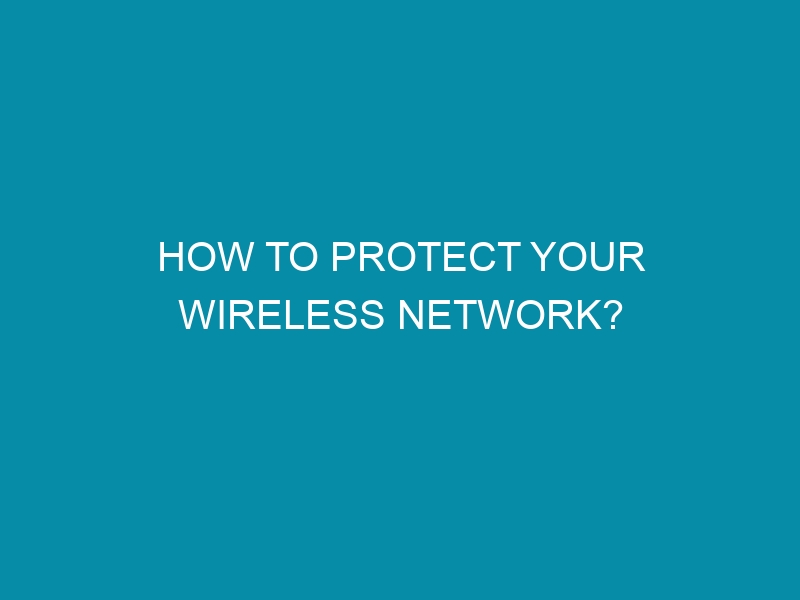In this age of technology, using internet-connected devices has become a norm. However, whether you are using these internet-connected devices at the office or home, cybercriminals are waiting for the slightest opportunity to exploit them. Cyber criminals can use them to steal identities, collect personal information, access financial details, and watch or listen to users. This is why you need a robust security strategy for your wireless network to minimize these risks. Let’s take a look at five ways to make your wireless network safer.
Have a professionally built wireless ecosystem
Your wireless infrastructure is the foundation that determines how secure or vulnerable your network will be. This is why it is vital to have wireless experts like McKinstry Wireless be at the forefront of designing, installing, and maintaining your wireless ecosystem. Using specialized expertise will boost confidence in your wireless infrastructure’s safety, efficiency, and capacity.
Embrace data encryption
The core of modern-day web security lies in how well you make use of data encryption. There are different types of encryption used today, and they are all aimed at enhancing your data protection and privacy. Data encryption converts easy-to-read data into a scrambled format that is harder for unauthorized parties to utilize. It is an efficient way of keeping sensitive data such as credit card information, social security numbers, financial information, valuable company reports, and contact details safe.
Install a firewall
You need a strong firewall for your wireless network to control incoming and outgoing traffic. This network security system provides secure layers that will make it harder for unauthorized access to get into your network. Advanced firewalls allow you to monitor traffic within your wireless network and warn you of any attempted or suspected breaches. With a reliable firewall, you will always be aware of the state of your wireless network and avoid costly breaches.
Hide your SSID
Every wireless network has a Service Set Identifier (SSID), which, unfortunately, is also the pathway that hackers use to access your network. As global ransomware attacks become severe by the day, you cannot risk having your wireless device broadcasting its presence. Hiding your SSID is a highly efficient way of remaining safe as it makes it harder for hackers to find your wireless network.
Invest in antivirus software
Hackers have many ways of getting around your wireless network security, and one way they do this is by using malicious code, links, and spyware. As technology advances, so have the codes and software used to gain unauthorized access into wireless networks and internet-connected devices. Luckily, you can protect your wireless ecosystem by installing antivirus software and ensuring it is always up to date and functioning properly.
Endnote
Internet-connected devices have made it simpler for businesses and individuals to collaborate, share data, and browse through the web. Unfortunately, it has also created a large entryway for attackers and hackers to breach your wireless networks. Taking the right precautions will help keep you safer and limit the potential impacts of malicious activities from unauthorized parties.











Leave a Reply